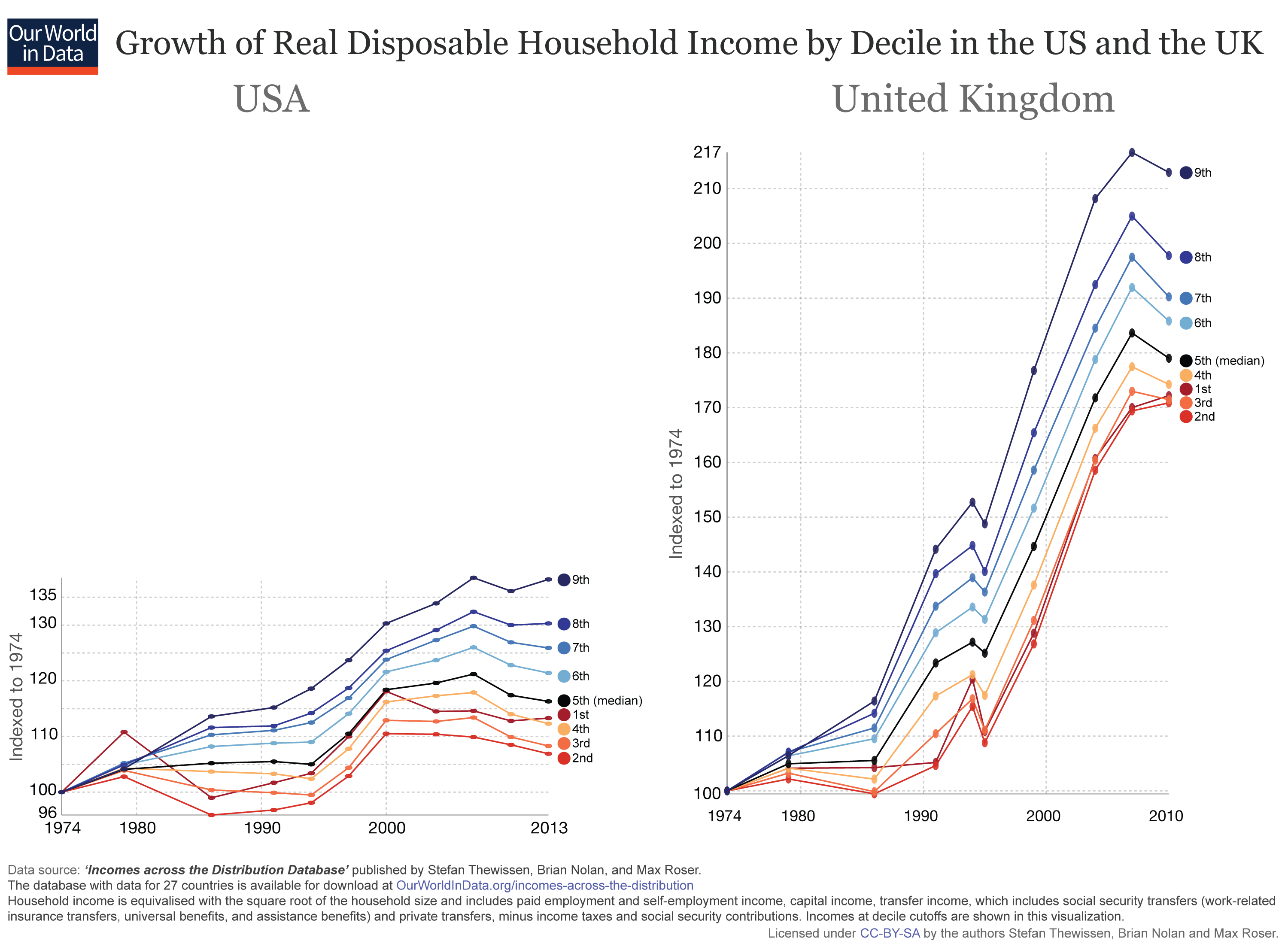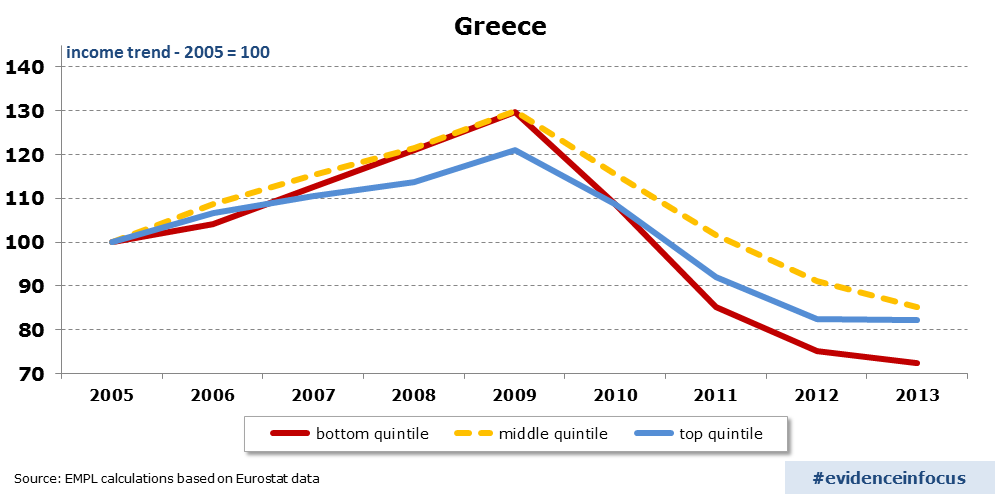I guess my question there is, what if there is a logarithmic curve to real median income growth for a given mix of workers? What if, instead of continuing to rise without limit, the curves tapers as a market is willing to sustain only that level of pay for work, regardless of efficiency gains and productivity. Maybe we hit that limit in 1998 and now we're going to be stuck there until a major change. In that case, it would make sense that real income growth stalls and swings around that set limit until something else changes. We would see a huge gain in highest-level earners as they pocket the difference in profits, but also in an effort to compete we would see workers expand into other countries which have not reached that limit. I don't argue that there are more billionaires, or that income growth for a ton of people has stopped within a set of countries, I'm just curious to see if that's a natural phenomenon now that the 'easy' income growth of getting into a new level of professional economy has already happened. Maybe the next change is automization which throws everything for a way bigger loop. Or maybe it's just that China becomes an economy on par with the West and makes a huge difference in consumption and supply of money in a wider middle class.
My counter-question would be, "what is the significance of the median?" Certainly, if you were going to pick one statistic it's a good one to pick but if you're trying to analyze the whole system and its desirability to all participants, you might want to look at income deciles, for example: Median income has stagnated for the median since 2000. It's stagnated for the 60th and 70th deciles, too. 80th and 90th? Things are bright. 20th, 30th, 40th? things are in the shit. But take a close look at 10th percentile - straight poverty level - Bush and Clinton were awesome for the poor and it's been pretty much shit ever since. Put another way, "maybe tax and social policy hamstrung the lower and middle class in 1998 at the expense of the upper class." This is not a natural system - it is the output of a synthetic system whose inputs are tax and employment policy. It's not a problem Sweden has: It's a problem Greece has in spades: So in a sense yes, the numbers reflect the inputs. But in a sense no, those numbers are not "natural."I guess my question there is, what if there is a logarithmic curve to real median income growth for a given mix of workers?

Maybe we hit that limit in 1998 and now we're going to be stuck there until a major change.

